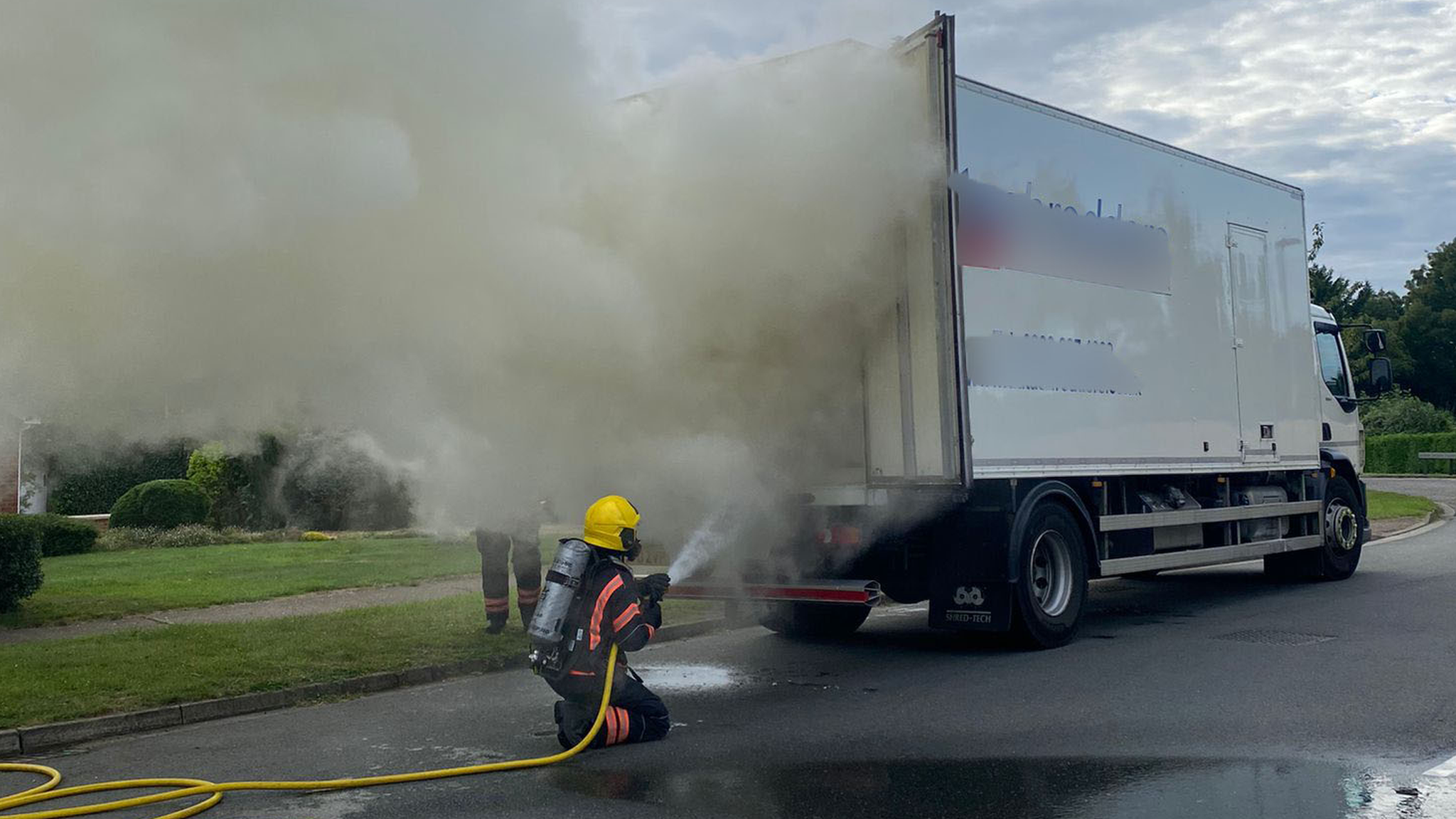Kent: Safety fears over battery storage plans at Cleve Hill
- Published
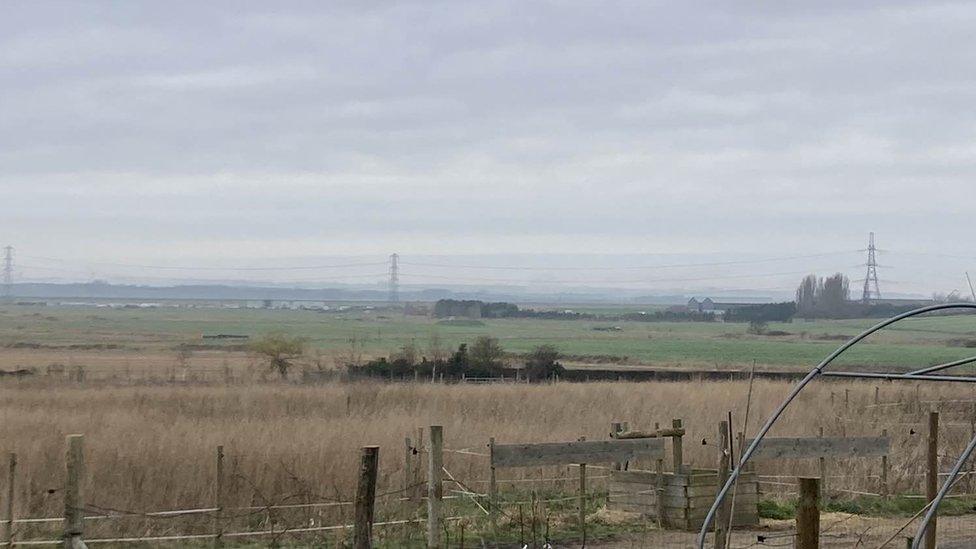
The solar farm could generate renewable power for more than 91,000 homes
Campaigners plan to protest outside a council meeting over safety fears at a solar farm site in east Kent.
Concerns have been raised about a storage plant using lithium-iron batteries at the Cleve Hill Solar Farm Park, Graveney, near Faversham.
Sir David Melville, physicist and vice chair of the Faversham Society, said a fire was "inevitable".
Cleve Hill Solar Park Ltd, which operates the site, has been approached for comment.
The park - which will consist of 800,000 panels on 890 acres (360 hectares) of farmland - was given government approval in May 2020 and is currently under construction.
The two energy companies behind the scheme - Hive Energy and Wirsol Energy - have said it will generate power for more than 91,000 homes.
An extraordinary planning meeting at Swale Borough Council in Sittingbourne on Wednesday will consider an application for an energy storage system comprising lithium-ion batteries, which the developers say is crucial to the site's development.
Planning officers are recommending that the proposal be approved.
The plan has already received more than 100 objections.
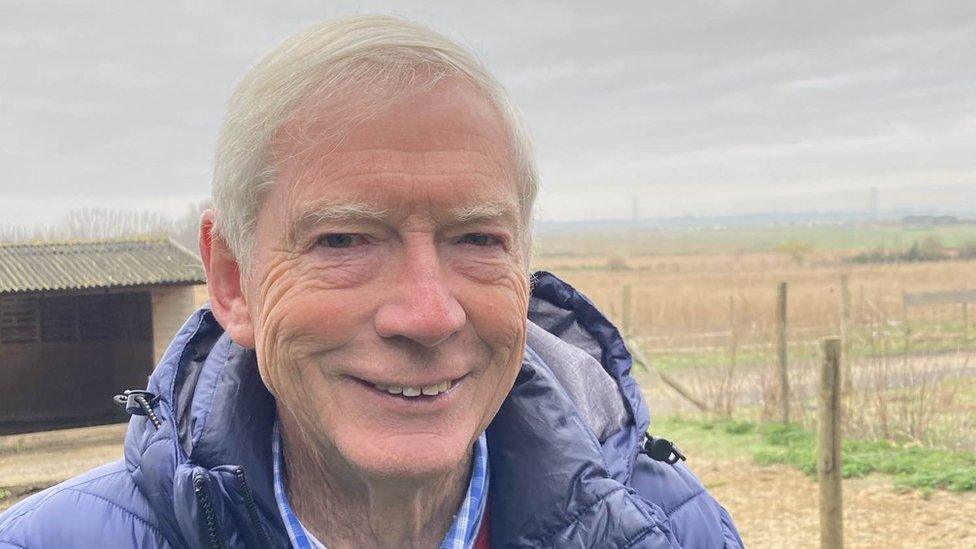
Sir David Melville is concerned about the safety of the batteries proposed to be stored at Cleve Hill Solar Farm
Sir David says lithium-ion battery systems have a "poor" track record.
"We know about fires or explosions and these batteries that are being proposed here are more liable to explosion than other types of batteries," he told BBC Radio Kent.
"It's almost inevitable that there will be a fire at some point in this battery storage system during its 40 year lifetime."
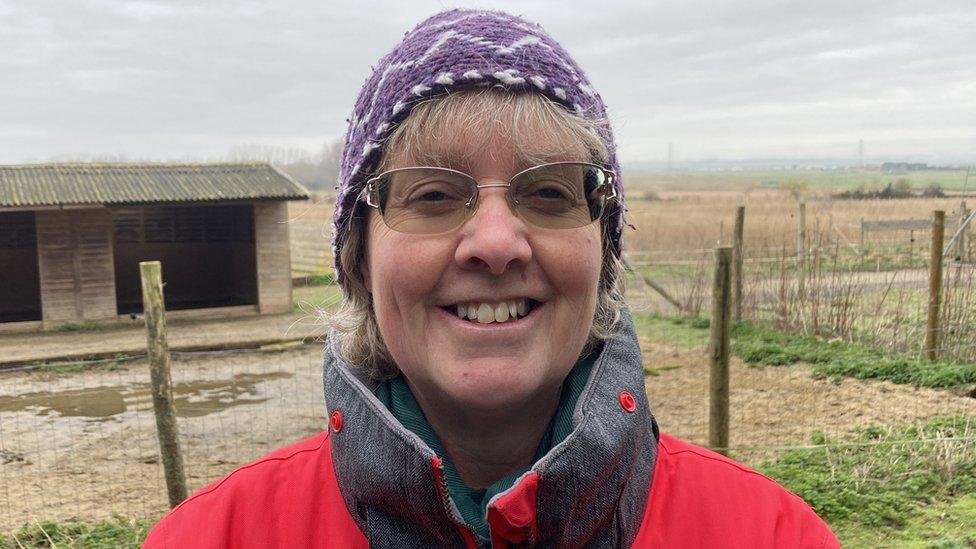
Carol Goatham is concerned about toxic smoke
Carol Goatham, from local environmentalist group Farms, Fields, & Fresh Air, has raised concern about the safety of locals and workers in the event of an accident.
"The plume of toxic smoke could affect half of the residents of the Isle of Sheppey and half of the residents of Whitstable," she said.
"It will even reach as far as Sittingbourne. So that's toxic gases that can impact on people's lungs, on their skin, on all the animals in the environment that are out, the farmworkers, the holidaymakers, the beachgoers."

Follow BBC South East on Facebook, external, on X, external, and on Instagram, external. Send your story ideas to southeasttoday@bbc.co.uk or WhatsApp us on 08081 002250.
Related topics
- Published28 May 2020
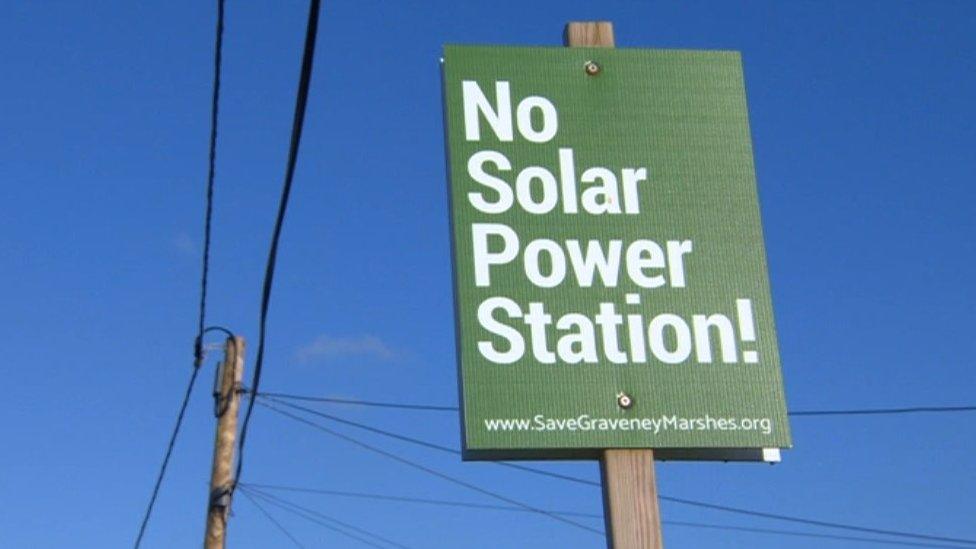
- Published15 December 2018
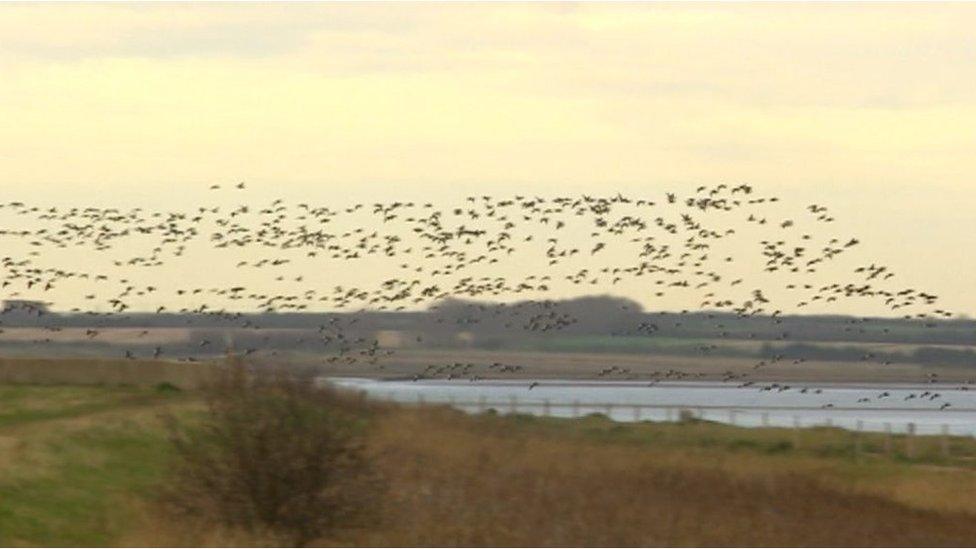
- Published27 August 2023
